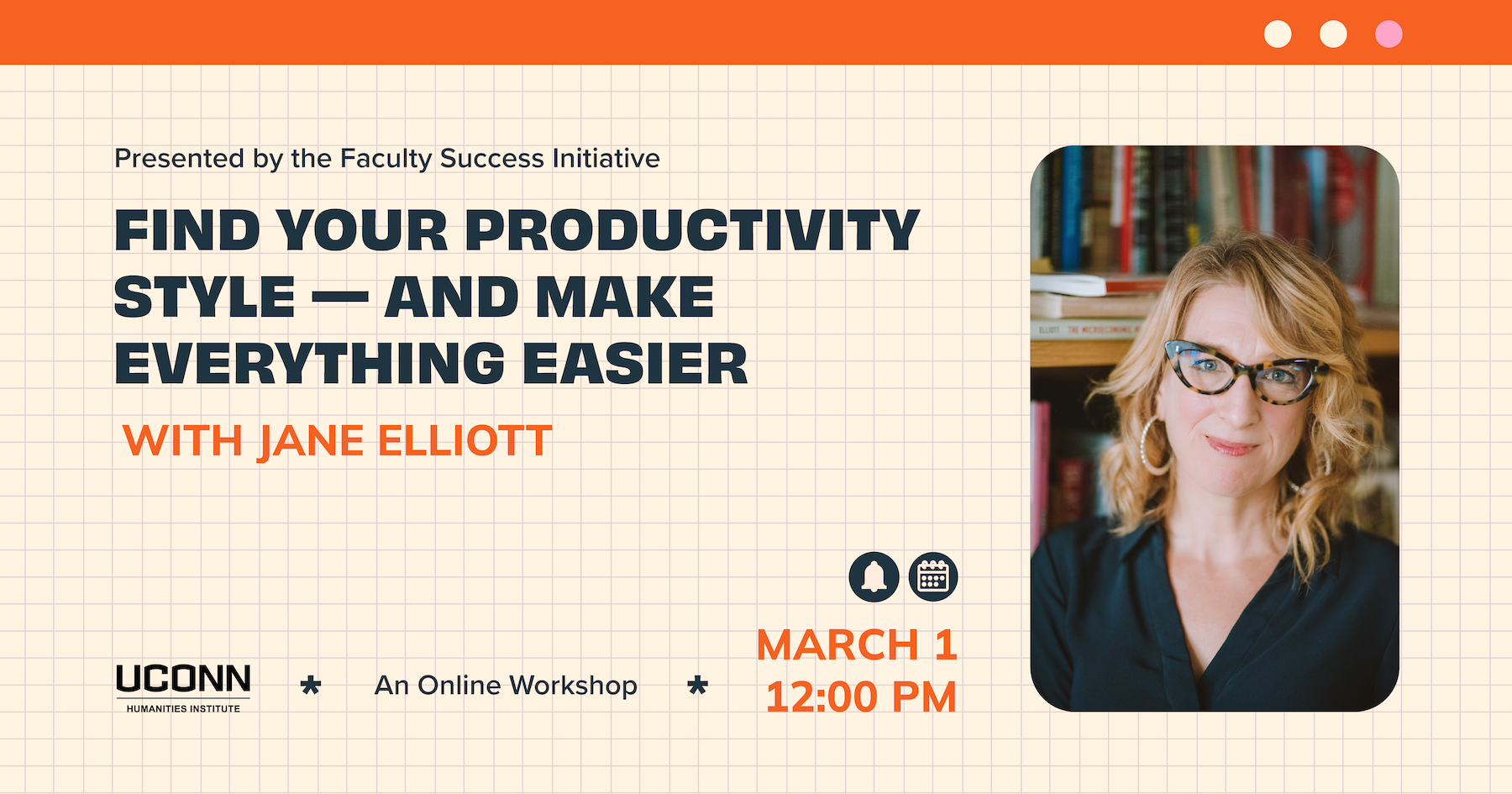
If you require accommodation to attend this event, please contact us at uchi@uconn.edu or by phone (860) 486-9057. We can request ASL interpreting, computer-assisted real time transcription, and other accommodations offered by the Center for Students with Disabilities.
The Faculty Success Initiative presents:
Find Your Productivity Style—and Make Everything Easier
An Online Workshop with Jane Elliott
March 1, 2024, 12:00–1:00pm
Live • Online • Registration required
Register
Popular productivity advice usually boils down to the same basic principles: capture all your tasks in list, prioritize them based on goals, and then plan and execute a detailed daily schedule. This approach seems reasonable, plus it’s easy to explain—which means easy to package and sell.
But for many of us, this advice is profoundly counterproductive for the way our brains think and work best.
Trying to use this top-down approach when your brain works differently is like pulling up to the gas station and getting a tank full of sand instead of fuel. We want something to help propel us forward, but we wind up grinding to a halt instead.
In this one-hour workshop, I’ll lay out the core productivity styles that fall outside the usual top-down advice. We’ll identify which style your brain naturally favors and dig into the specific advantages you gain from working this way And I’ll share key strategies for dialing in this style to create more of the progress you want.
You’re going to leave feeling relieved, energized and clear about how to make choices that increase your ability to do focused, satisfying and impactful work.
Jane Elliott is a coach, a writer, and a professor King’s College London. Her coaching practice grew from her experience mentoring students and junior colleagues. She specializes in helping smart people stop avoiding the things they know they want to do.

